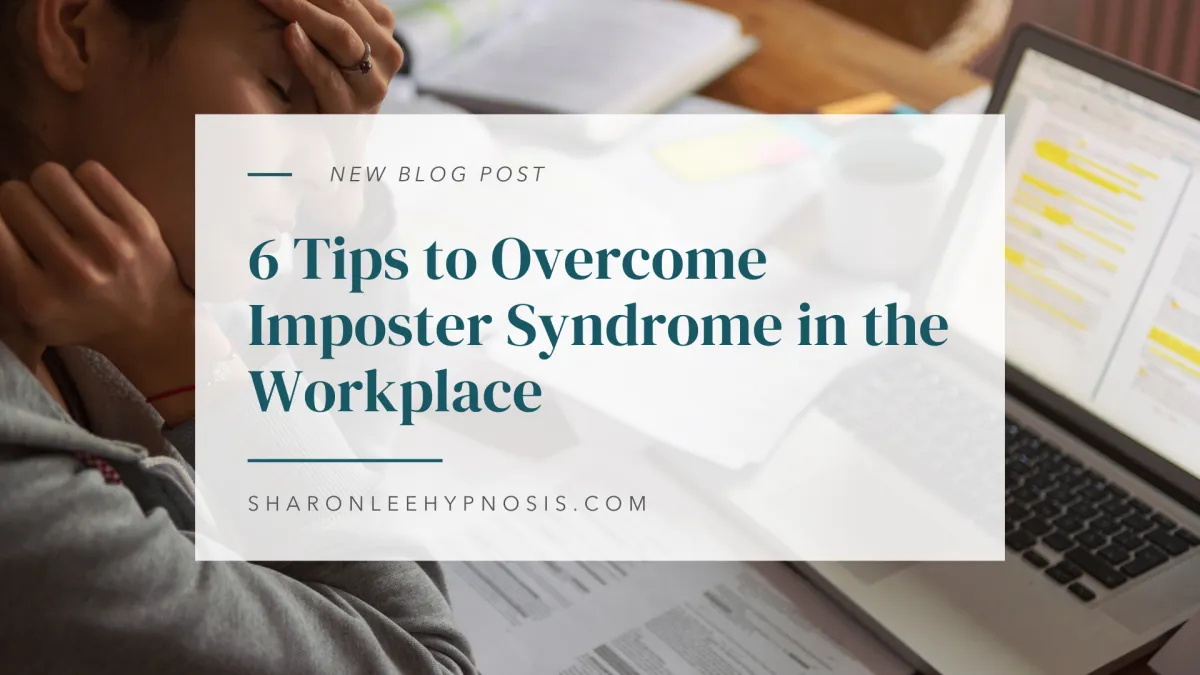Blog

Overcoming Imposter Syndrome in the Workplace
Imposter Syndrome is a psychological phenomenon where individuals doubt their accomplishments and fear being exposed as a "fraud". Despite their success, they attribute it to luck or deception, rather than their abilities. This syndrome is prevalent and can affect anyone, regardless of their job or social status.
In the workplace, Imposter Syndrome can manifest in various ways. It can lead to decreased job satisfaction, as individuals constantly feel like they're not doing a good enough job. The constant pressure to perform and fear of being exposed can lead to burnout, resulting in physical and emotional exhaustion. Imposter Syndrome can also make individuals overly cautious, avoiding new responsibilities or challenges for fear of failure. This constant self-doubt can lead to lower self-confidence, decreased productivity, inhibited teamwork, career stagnation, and even mental health issues.
Tips to Manage Imposter Syndrome
1. Recognize and Acknowledge Your Feelings: The first step in managing Imposter Syndrome is to recognize and acknowledge your feelings. Understand that it's a common phenomenon and you're not alone in experiencing it. Accept that everyone, at some point, feels out of their depth.
2. Practice Positive Affirmation and Self-Talk: Positive affirmations and self-talk can be powerful tools in combating Imposter Syndrome. Regularly remind yourself of your skills, abilities, and past successes. Replace negative thoughts with positive ones, such as "I am capable and competent" or "I deserve my success".
3. Seek Support: Don't hesitate to seek support from others. This could be mentors, peers, or a professional support group. Sharing your feelings and experiences can help alleviate the sense of being a "fraud". Others may share similar experiences, providing reassurance that you're not alone.
4. Celebrate Your Achievements: Make a habit of celebrating your achievements, no matter how small they may seem. This can help you realize your worth and capabilities. Keep a record of your accomplishments and refer back to it whenever you're feeling like an imposter.
5. Develop a Healthy Response to Failure and Mistakes: Understand that everyone makes mistakes and experiences failure. It's a part of the learning process. Instead of viewing it as proof of being an imposter, see it as an opportunity to learn and grow.
6. Seek Professional Help: If Imposter Syndrome is causing significant stress or affecting your mental health, consider seeking help from a mental health professional. Therapies like cognitive behavioral therapy (CBT) or hypnotherapy can be particularly effective.
Hypnotherapy is a powerful tool that can help manage Imposter Syndrome. It involves guiding individuals into a deeply relaxed state, allowing them to access their subconscious mind. This state of mind is more open to suggestions, making it possible to change negative thought patterns and boost self-confidence.
I invite you to begin your transformative journey today and experience the incredible power of your own mind. Whether you’re looking for Mindset Coaching or Hypnotherapy, you can book your session now and embrace a new, more empowered version of yourself.
Imposter Syndrome can be a significant obstacle in the workplace, but it doesn't have to be. With the right tools and support, you can overcome this syndrome and unlock your full potential.
Blog

Overcoming Imposter Syndrome in the Workplace
Imposter Syndrome is a psychological phenomenon where individuals doubt their accomplishments and fear being exposed as a "fraud". Despite their success, they attribute it to luck or deception, rather than their abilities. This syndrome is prevalent and can affect anyone, regardless of their job or social status.
In the workplace, Imposter Syndrome can manifest in various ways. It can lead to decreased job satisfaction, as individuals constantly feel like they're not doing a good enough job. The constant pressure to perform and fear of being exposed can lead to burnout, resulting in physical and emotional exhaustion. Imposter Syndrome can also make individuals overly cautious, avoiding new responsibilities or challenges for fear of failure. This constant self-doubt can lead to lower self-confidence, decreased productivity, inhibited teamwork, career stagnation, and even mental health issues.
Tips to Manage Imposter Syndrome
1. Recognize and Acknowledge Your Feelings: The first step in managing Imposter Syndrome is to recognize and acknowledge your feelings. Understand that it's a common phenomenon and you're not alone in experiencing it. Accept that everyone, at some point, feels out of their depth.
2. Practice Positive Affirmation and Self-Talk: Positive affirmations and self-talk can be powerful tools in combating Imposter Syndrome. Regularly remind yourself of your skills, abilities, and past successes. Replace negative thoughts with positive ones, such as "I am capable and competent" or "I deserve my success".
3. Seek Support: Don't hesitate to seek support from others. This could be mentors, peers, or a professional support group. Sharing your feelings and experiences can help alleviate the sense of being a "fraud". Others may share similar experiences, providing reassurance that you're not alone.
4. Celebrate Your Achievements: Make a habit of celebrating your achievements, no matter how small they may seem. This can help you realize your worth and capabilities. Keep a record of your accomplishments and refer back to it whenever you're feeling like an imposter.
5. Develop a Healthy Response to Failure and Mistakes: Understand that everyone makes mistakes and experiences failure. It's a part of the learning process. Instead of viewing it as proof of being an imposter, see it as an opportunity to learn and grow.
6. Seek Professional Help: If Imposter Syndrome is causing significant stress or affecting your mental health, consider seeking help from a mental health professional. Therapies like cognitive behavioral therapy (CBT) or hypnotherapy can be particularly effective.
Hypnotherapy is a powerful tool that can help manage Imposter Syndrome. It involves guiding individuals into a deeply relaxed state, allowing them to access their subconscious mind. This state of mind is more open to suggestions, making it possible to change negative thought patterns and boost self-confidence.
I invite you to begin your transformative journey today and experience the incredible power of your own mind. Whether you’re looking for Mindset Coaching or Hypnotherapy, you can book your session now and embrace a new, more empowered version of yourself.
Imposter Syndrome can be a significant obstacle in the workplace, but it doesn't have to be. With the right tools and support, you can overcome this syndrome and unlock your full potential.




